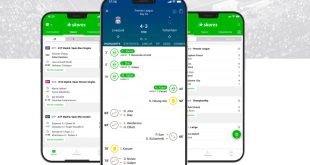For betting operators, the intricacies of trading will continue to provide a unique challenge as they look to utilise data and physical trading to provide the perfect pricing environment.
Head of Compilation at Abelson Info, Jeevan Jeyaratnam detailed why physical traders still play a crucial role for betting operators, as well as analysing how Asian markets play a role in the development of the markets offered by UK operators.
SBC: Can you explain why market turbulence occurs in the early stages of a market opening up?
Jeevan Jeyaratnam: We have established that the AHC markets are critical to the eventual football SP for a match. It is also generally accepted that modern-day betting markets are mirror images of themselves. This is explained by the influence of the AHC and the idea of a football SP, deviation from this norm is considered dangerous, given the arbitrage opportunities it will open. Lopsided books are de rigeur for the industry, but if you are consistently on the wrong side of an AHC SP, you’ll soon start shipping unsustainable amounts of cash.
Automated trading solutions have swept through the industry as the internet has helped dictate the pace of change in the industry. Physical traders are deemed an unnecessary expense for many sportsbooks, for whom prices are managed by a third-party. Those firms still using traders tend to direct them towards the busier in-play markets than the early 1X2 match lines.
A subsequence of this neglect is weak early lines. The AHC are often slower to the market than third-party data suppliers. This does suggest that the third-parties have large trading teams determining pricing. The reality is that there are a couple of these firms producing, in many cases unnecessarily early, prices for their clients. Some of these third-party suppliers offer relatively cheap solutions to clients, relying on selling the same data many times to cover the costs of production. We can infer, therefore, that there likely aren’t highly skilled analysts and trading teams producing pricing. Given that the third-parties are bound to following the AHC lines, when available, there would be little justification for a highly skilled odds compilation unit.
A further consequence of weak match prices (1X2) and total goal (U/O) inputs is the cascade effect that they have on derivative markets. Essentially, they will all be inaccurate, until the quality of the inputs improves, generally when the AHC line is established.
SBC: Is there a danger that operators are becoming overly reliant on Asian handicaps for guidance when it comes to trading?
JJ: It would be foolhardy to dismiss the trends derived from the AHC prices, they are analysed and compiled to a level far beyond the capability of the average punter. That said, there are definite cases for suggesting that some of the very obscure AHC prices are actually derived from, for example bet365. The Stoke-based giant are an anomaly, they have a team of pre-match compilers pricing up all manner of weird and not so wonderful leagues. There is some evidence to suggest these prices are taken into account when some of the more unusual competitions’ AHC lines are set.
I think it fair to assume that the AHC prices are considered solid, not necessarily at the point of creation, but when they have been traded. The huge flow of money in these markets means they are the best representation of the “right” price.
The unabated trend towards fully automated algorithmic trading mean that the key input variables (Supremacy and Expectancy, derived from AHC & Total Goal lines) are essential to the whole betting product, not just the 1X2 and goal lines. An algorithm is only as good as the values input, so it is vitally important to have confidence in in your input prices.
I’m sure all firms have particularly low maximum bet stakes set for all games with prices not yet trading in the Asian market, and so little damage is done, but this does represent a depressing brain drain for the industry.
SBC: Are there benefits for operators to employing various different traders to various different leagues, is it a feasible move for operators in the modern day?
JJ: Before the use of pricing feeds became accepted standard behaviour, this is exactly the way bookmakers would handle things. Of course, automated feeds have taken the place of traders and their associated salaries, pensions and sick pay, so you can see why the industry has headed this way. Indeed, one large European-based operator has recently culled its specialist trading staff, deeming them unnecessary to the future business.
While pricing confidence and attitude to arbitrage players would improve with a team of compilers, the significant cost of employing teams to handle the small window between embryonic price creation and AHC trading is considered prohibitive, a feeling that is unlikely to change in the near future.
Obviously, the prices must originate from somewhere, but that ‘somewhere’ is a far smaller circle than it once was. The big Asian facing operators do, of course, use compilation and trading teams; they are the market makers.
SBC: With the continued growth of ‘Build a Bet’ and ‘Request a Bet’ style markets, how do you see the role of a trader evolving in the coming years?
JJ: Trader is already a very tenuous title, these days many traders spend most of their time profiling customers. That isn’t set to change with the advent of “Bet Builder”, as this is an extension of the algorithms already calculating the derivative markets from the core inputs discussed previously. Those firms still taking customer selections from social media will need staff to convert those selections to prices, but the trader is merely acting as a conduit between an internal algorithm and the customer.
In similar vein to the stock market, the role of manual traders is becoming less and less. This is a huge shame for the industry, as we have established there are a multitude of careless early prices, so there would be scope for these roles, but sadly I just don’t see it happening given the need to streamline businesses in such a competitive segment.









